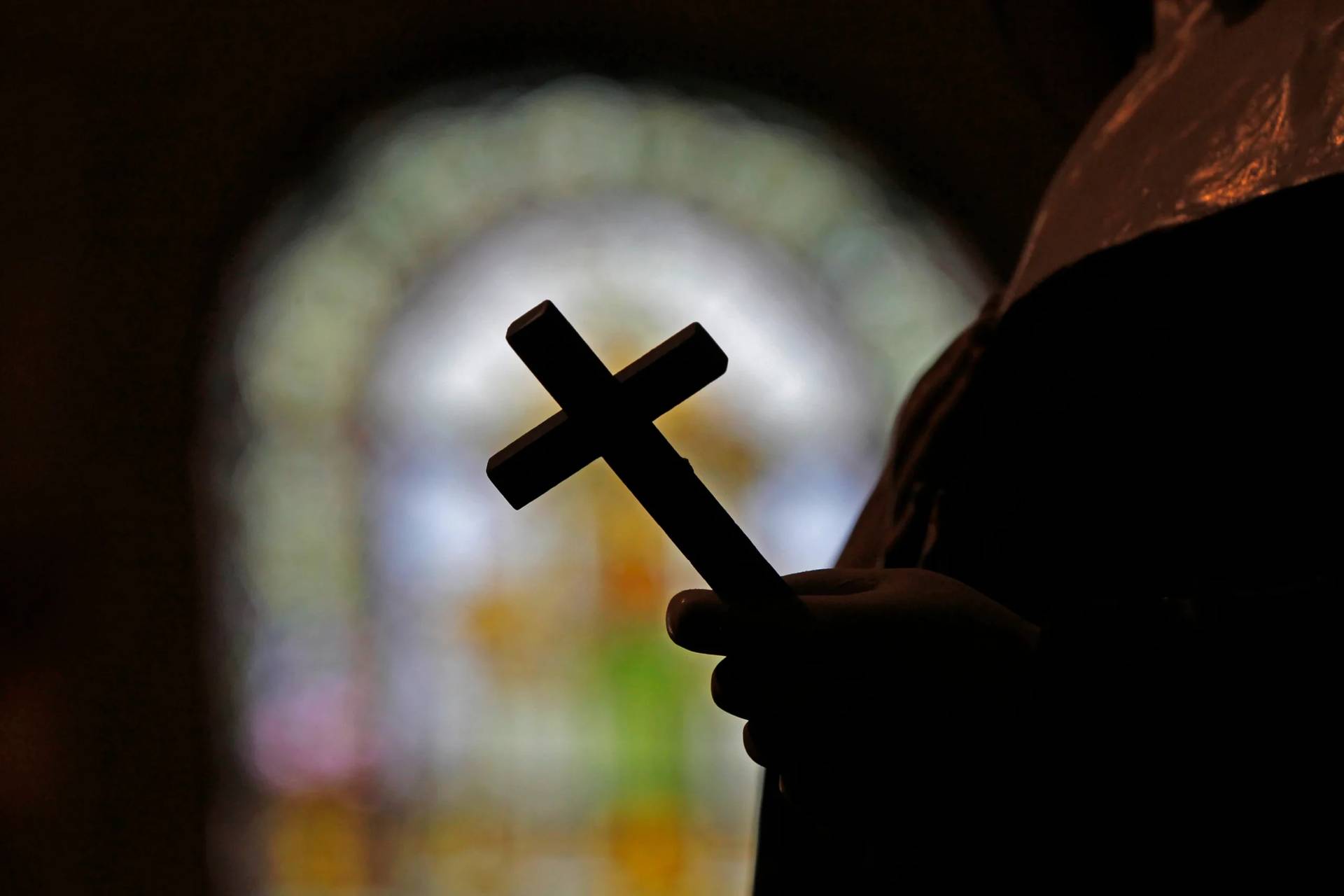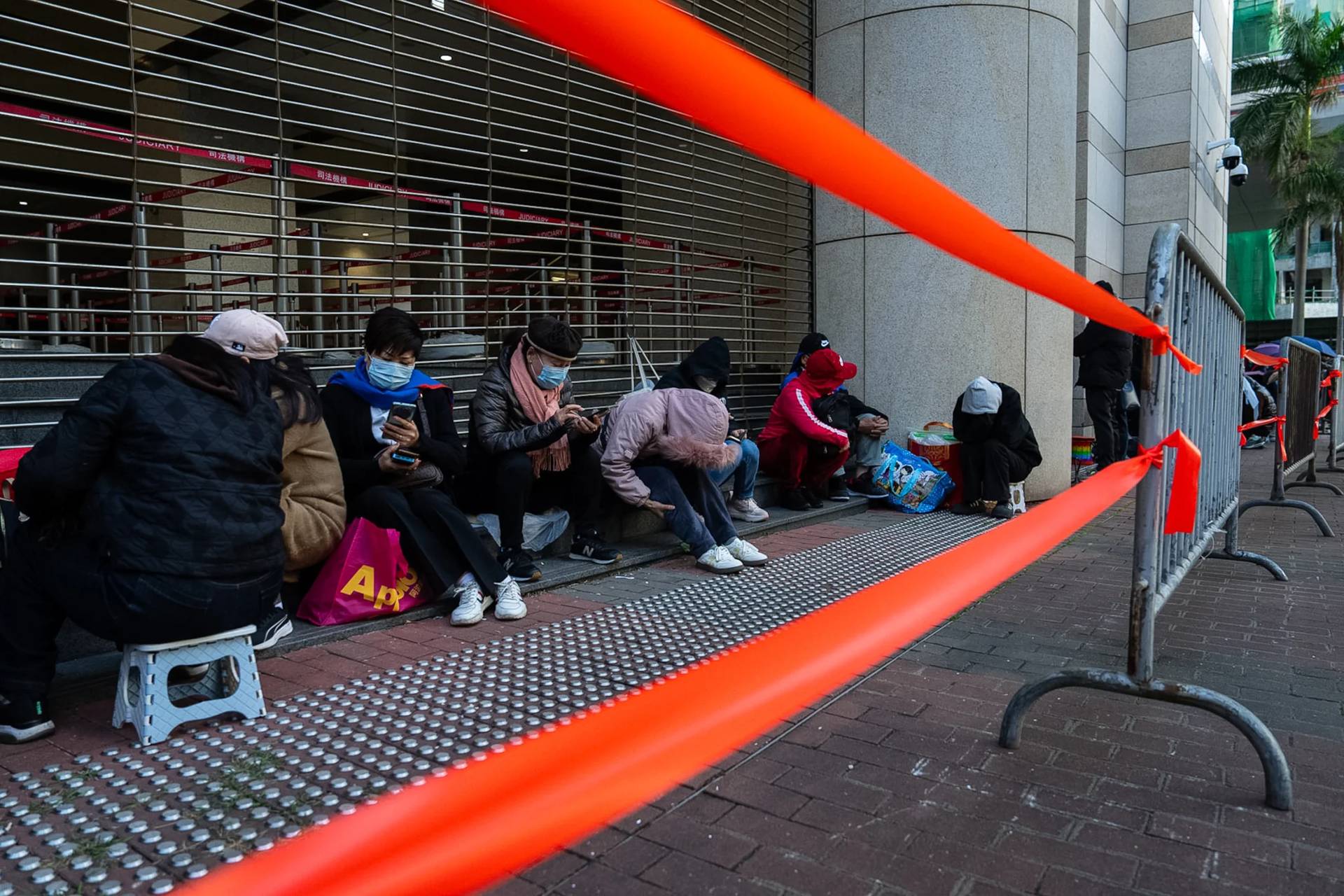WASHINGTON, D.C. – Fifty years after the death of Jesuit Father John Courtney Murray, his pioneering thought on religious freedom remains among the most consequential writings on the matter since the American founding. At a time when the nature of religious freedom is increasingly contested, Georgetown University’s Initiative on Catholic Social Thought and Public Life is seeking to revive Murray’s legacy for today.
People “of all religions and of no religion must live together in conditions of justice, peace and civic friendship, under equitable laws that protect the whole range of human rights, notably including the right to religious freedom,” wrote Murray. “It is therefore necessary for the Church to show the way to justice and peace in society.”
In a panel discussion on Thursday, November 16, Initiative director John Carr brought together Bishop Robert McElroy of San Diego, Rick Garnett, professor of law at the University of Notre Dame Law School, and Melissa Rogers, former head of the White House Office of Faith-based and Neighborhood Partnerships during the Obama administration, to consider what robust religious freedom looks like in a pluralistic society. The event was the second in a series of conversations on democracy and faith between the Initiative and the Democracy Fund.
Setting the stage for the conversation, Carr described a litany of recent headlines: A campus group at a Catholic university being challenged for upholding the traditional view of Christian marriage, religious leaders blessing abortion clinics, and speakers being uninvited from campuses. All present different — at times — distorted understandings of religious liberty.
“It would be fair to say that [Murray’s] ideals are being tested today,” said Carr. “We’re a long way from the vision that Father Murray offered us.”

McElroy, who in 1989 authored the book The Search for an American Public Theology: The Contribution of John Courtney Murray, began the discussion by saying that all Americans, not just Catholics, are indebted to Murray for helping the country with a framework for understanding the implications of religious liberty.
Murray “helped reconcile what was the lived reality of the United States — namely, a vibrant, robust, constitutional order in which religious liberty was present,” said McElroy. “The Catholic experience in the United States taught the world how to think about religious liberty in a new way.”
Murray, whose 1960 book We Hold These Truths: Catholic Reflections on the American Proposition, became a pivotal influence in the Second Vatican Council, and is widely considered one of the foremost proponents to reconcile the American project of democracy with Catholicism.
According to McElroy, Murray helped people of all backgrounds and faiths understand the role of the Church, and more broadly, the importance of institutions in American society. For Murray, institutions served as mediating forces and the means by which individuals of different backgrounds could come to better understand each other’s ways of seeing the world.
Yet for McElroy, American institutions have largely become polarized and are failing to offer what Murray believed was critical for the functioning of democracy, namely, a place for finding common ground.
“I think he would be appalled by our politics today, because Murray believed that politics at its worst was tribal,” said McElroy. “The reason that the United States has been able to succeed … was that there was dialogue between men and women and between different groups, and that was the key. And sadly, there is not that dialogue now, of substance.
“He would not be sympathetic to identity-driven politics now,” McElroy added.
As a solution, McElroy said America today would do well to embrace what Saint Pope John Paul II called a “conversion to solidarity.” McElroy said that this approach asks “How am I a debtor to the society? How can I build it up?”
Until America recovers such a way of operating, said McElroy, “our dialogue will be empty and poisonous” and he fears religious believers won’t be able to effectively mobilize.
Rogers described the current areas of conflict that are challenging for religious freedom in the United States today: “Competing human rights claims, claims for religious liberty pitted against claims for LGBT equality, or claims for reproductive rights.”
Drawing on her experience working in the White House, Rogers lamented the tribalism that she saw firsthand during the debates over the Health and Human Services (HHS) mandate. “Often times, the people who are dismissing each other aren’t in the same room anymore,” she said.
Rogers said that Christians must be the most vigilant against this type of behavior and regularly ask, “Are we living up to our Christian responsibilities or are we becoming lapdogs for a political party or a political faction?”
Meanwhile, Garnett recalled Murray’s definition of civilization being “men locked together in argument.” Argumentation isn’t necessarily a bad thing, he maintained, if true argumentation is actually taking place.
“We’re screaming a lot, we’re tweeting a lot, we’re snarking a lot,” said Garnett. “We’re not really arguing.”
Garnett lamented that many political leaders have a tendency to reduce religious liberty to “private, individual, subjective experience.” Instead, he reminded the audience that for Murray, democracy did not require a “muting of disagreements.”
McElroy said that today’s partisan landscape makes this task even more difficult for Catholics.
“Our key issues lie on both sides of the partisan spectrum now,” said McElroy. “That is, for us, the issues of abortion, euthanasia, tend to be issues in which Republican candidates are more supportive. Issues of economic justice for the poor and the environment are issues where the Democrats are. So we’re split, but that helps keep us honest.
“If we’re going to have integrity for what our beliefs are, then we’re always going to be criticizing part of what you do and supporting part of what you do,” he added. Rogers offered a similar assessment, saying that these divides make it all the more critical that religious communities serve as “the conscience of the state.”
As the panel concluded offering ways in which Murray’s “civic friendship” might be achieved, and hence, religious liberty better sustained, McElroy said he believes the way forward is to embrace Pope Francis’s practice of accompaniment.
“It’s seeing the other side or walking with the other person,” said McElroy. “What he says is in this theme of accompaniment, that means trying to understand what are the issues from their perspective? What is the personal history that lies behind it? What’s the suffering there? What are the relationships that are at stake? I don’t think we’re effectively doing that now.”















